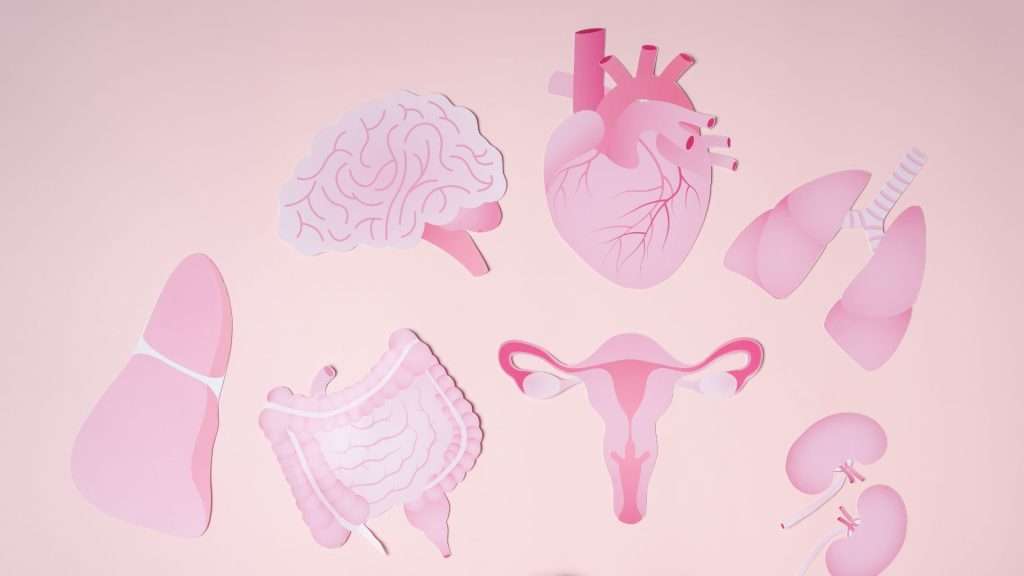Welcome to our PCOS Nutrition Blog, where we delve into the intricate connection between Hormonal Imbalance and PCOS. As accredited dietitians specialising in PCOS Disease Management, we’re here to unravel the mysteries of hormonal fluctuations and guide you through natural strategies for managing them effectively.

Understanding the Role of Hormones in PCOS Disease Management
Polycystic Ovary Syndrome is intricately tied to hormonal imbalances, often leading to irregular menstrual cycles, cyst formation on the ovaries, and a range of associated symptoms. Key hormones affected in PCOS include insulin, androgens (like testosterone), and estrogen. Let’s break down their roles:
- Androgens: Higher levels of androgens, often considered male hormones, can disrupt the normal functioning of the ovaries and lead to symptoms such as acne, hirsutism (excessive hair growth), and male-pattern baldness.
- Insulin: Elevated insulin levels are common in PCOS and can contribute to increased androgen production. This can lead to irregular ovulation and the development of ovarian cysts.
- Estrogen: Imbalances in estrogen levels, relative to other hormones, can impact the regularity of the menstrual cycle and contribute to fertility issues.
Understanding these hormonal dynamics is crucial for developing effective management strategies.
Managing Hormonal Imbalances Naturally:
- Balanced Nutrition:
- Prioritise a balanced diet rich in whole foods, fiber, and complex carbohydrates to help regulate blood sugar levels and reduce insulin resistance.
- Include sources of omega-3 fatty acids, such as fatty fish and flaxseeds, to support hormonal balance.
- Mindful Carbohydrate Choices:
- Opt for low glycemic index (GI) carbohydrates to prevent rapid spikes in blood sugar levels.
- Include colorful vegetables, whole grains, and legumes in your meals for sustained energy.
- Anti-Inflammatory Foods:
- Incorporate anti-inflammatory foods, such as turmeric, ginger, and berries, to combat inflammation associated with hormonal imbalances.
- Regular Physical Activity:
- Engage in regular exercise to enhance insulin sensitivity and promote overall hormonal balance.
- Include a mix of cardiovascular exercises, strength training, and flexibility exercises in your routine.
- Stress Management:
- Practice stress-reducing techniques like yoga, meditation, and deep breathing exercises to lower cortisol levels and mitigate hormonal fluctuations.
- Adequate Sleep:
- Prioritise good sleep hygiene, aiming for 7-9 hours of quality sleep per night, as inadequate sleep can disrupt hormonal balance.
- Herbal Support:
- Some herbs, such as spearmint tea and chasteberry, have shown promise in helping manage hormonal imbalances in PCOS. Consult with a healthcare professional before incorporating herbs into your routine.
Understanding and managing hormonal imbalances naturally is a multifaceted approach that involves lifestyle, nutrition, and self-care. By implementing these strategies, you can take significant steps towards achieving hormonal harmony and enhancing your overall well-being.
Remember, it’s always advisable to consult with a healthcare professional or a registered dietitian for personalised advice tailored to your specific needs and health profile. Stay tuned for more insights on PCOS Disease Management!
Learn more about NutriBlooms services and how we can help with PCOS management. Follow the link and book your first consultation
PCOS Disease Management Serivce
Post navigation
PreviousPrevious post:Why You Need a Gestational Diabetes Dietitian
NextNext post:How Diet Can Tackle Gestational Diabetes


